Play that tune to lower dementia risk
Angie White
09 November 2025, 6:40 AM
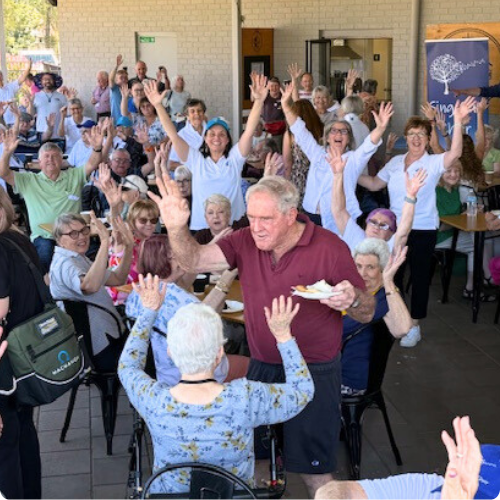 Dubbo's all-inclusive Sing Out Choir helping people with dementia one song at a time - [Image Sing Out Choir]
Dubbo's all-inclusive Sing Out Choir helping people with dementia one song at a time - [Image Sing Out Choir]‘Where words fail, music speaks’ and none more than for those over 70 years of age according to recent research out of Monash University, who say listening to music reduces the risk of dementia.
Over 10,800 older people took part in a study which linked a 39 per cent reduction in dementia.
Professor Joanne Ryan and Monash Honours student Emma Jaffa led the study looking at the benefits of listening to music or playing music in Australians aged over 70.
They found that always listening to music compared with never/rarely/sometimes listening to music was associated with a 39 per cent decreased risk of dementia.
Playing an instrument was associated with a 35 per cent reduction in dementia risk.
Always listening to music was associated with the greatest reduction in dementia risk, a 39 per cent lower incidence, and 17 per cent lower incidence of cognitive impairment, as well as higher scores in overall cognition and episodic memory (used when recalling everyday events).
If regularly listening to music and playing, a 33 per cent decreased risk was found and 22 per cent decreased cognitive impairment risk.

Professor Joanne Ryan researcher Monash University [Image Monash University]
“Population ageing has become a global public health concern due to advances in medicine and technology extending human lifespans, and this longer life expectancy has also meant an increase in the prevalence of age‐related diseases, including cognitive decline and dementia,” senior author Professor Ryan said.
“With no cure currently available for dementia, the importance of identifying strategies to help prevent or delay onset of the disease is critical.
“Evidence suggests that brain ageing is not just based on age and genetics but can be influenced by one's own environmental and lifestyle choices.
“Our study suggests that lifestyle-based interventions, such as listening and/or playing music can promote cognitive health,” said Professor Ryan.
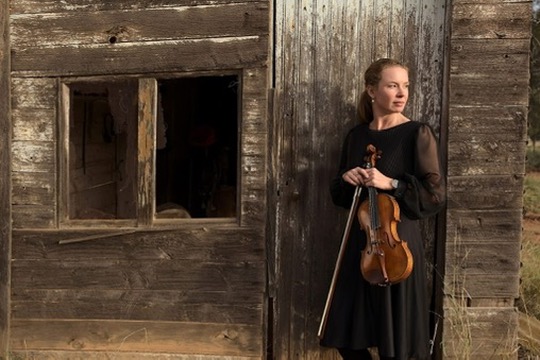
Frances Wilson of Warren, Director of the Warren SING Choir and Warren Chamber of Music Festival- [Image F.Wilson]
Frances Wilson of Warren, Director of the Warren SING Choir and all-round musical guru says music changes you.
"Music has a profound effect on performers of music, and listeners,” said Mrs Wilson.
“I have observed firsthand the stimulation and inspiration experienced through music-making, whether it be in a community choir, or a professional chamber ensemble, that has resulted in a transformative and moving experience that influences both emotions and cognition.
“I am very pleased to see all the incredible science now proving what musicians and music-lovers have sensed for generations... that music changes you: mind, body and soul," said Mrs Wilson.

Anne Gemmell - Sing Out Choir Coordinator and Founder - [Image Sing Out Choir]
Anne Gemmell, a Dubbo Dementia Counsellor and registered Nurse, noticed while working with her dementia patients that when music played something changed.
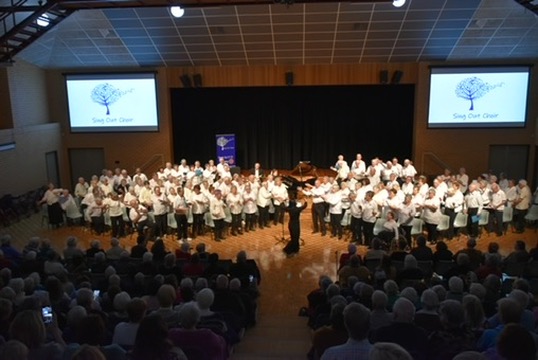
Dubbo's all-inclusive Sing Out Choir helping dementia patients feel connected - [Image Sing Out Choir]
“People who had forgotten words remembered lyrics. Those who had withdrawn into silence began to sing.
"Laughter, movement, and joy replaced isolation and sadness,” according to Ms Gemmell.
After researching the impact of music on the dementia brain and securing funding, Anne created an all-inclusive choir titled the Sing Out Choir in 2022.
After a small start with 25 members the Sing Out Choir now has over 170 members attend each week, along with 30 volunteers.
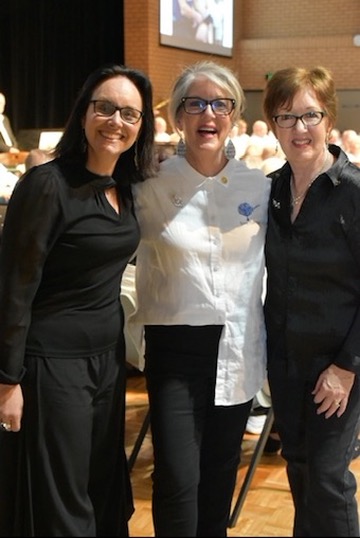
Sing Out Choir Conductor Camilla Ward, Founder Anne Gemmell and Accompanist Sharon Simons - [Image Sing Out Choir]
Professor Belinda Cash from Charles Sturt University is conducting a Sing Out Choir Research Project, which explores the experiences of 25 people involved in the choir, including 8 people living with dementia, 8 informal carers, 6 volunteers and 3 choir staff.
She found that despite people being nervous about joining the choir, they ended up loving it and encouraging others to join.
“These focus groups explored the experience of facilitating and participating in an inclusive choir for people living with dementia in a regional Australian setting,” said Professor Cash.
“The main conclusion was that Sing Out choir provides an important opportunity for meaningful social connection for people living with dementia and their carers.
“The project we are about to commence is a pilot to test whether pre-recorded choir sessions can provide a feasible and beneficial activity for residents of residential aged care facilities who are unable to attend the choir in person."
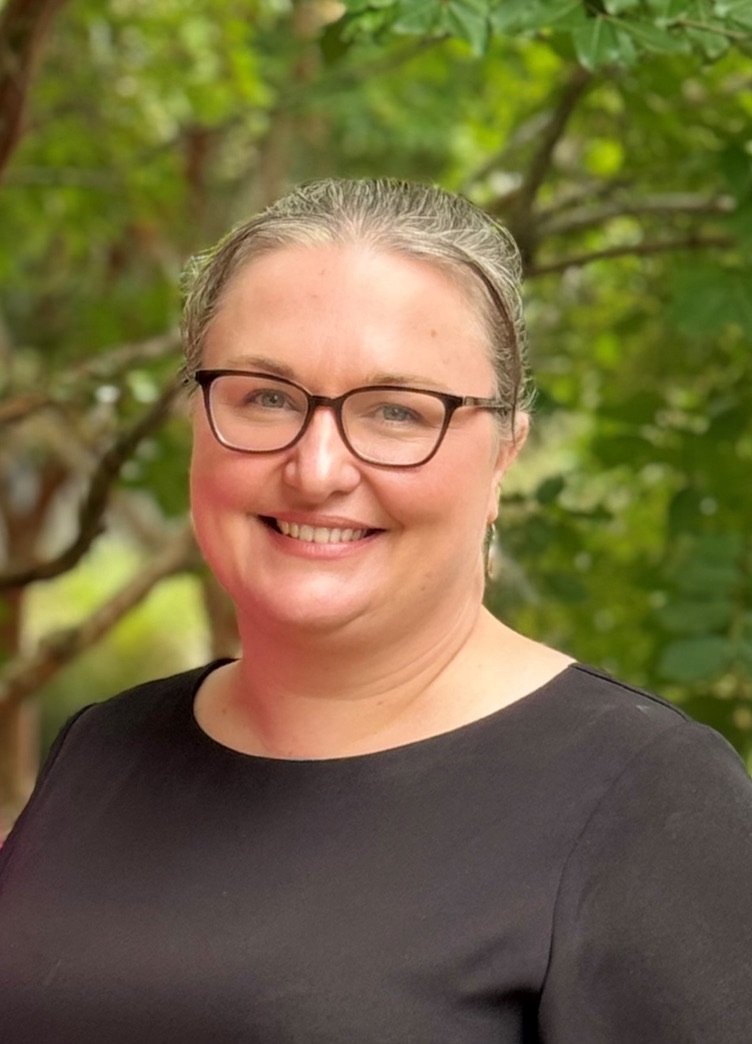
Professor Belinda Cash Charles Sturt University Researcher - [Image CSU]
“Essentially, we are collecting data from residents at one facility who will participate in choir sessions using recordings of Sing Out choir and collecting the same data from residents at another facility who aren’t participating in the choir sessions.
“This will help us to see whether the choir sessions have any impact on the residents’ feelings of loneliness and their psychological wellbeing.
"If they do, it provides us with some great insights into a lower resource way of bringing the choir benefits to a group of older adults who often have difficulties accessing community-based activities, and who have very high risks to their mental health and wellbeing,” said Professor Cash.
“Music is what I miss the most,” said a western area aged care resident.
“My wife and I always played music, in the car, on our record player and we used to sing all the time, but since she passed away, for some reason the music stopped.
“I’m not up with all the latest technology so I don’t know how to operate the music machines.
"I would love to have more music around, I always feel better for it,” he said.



